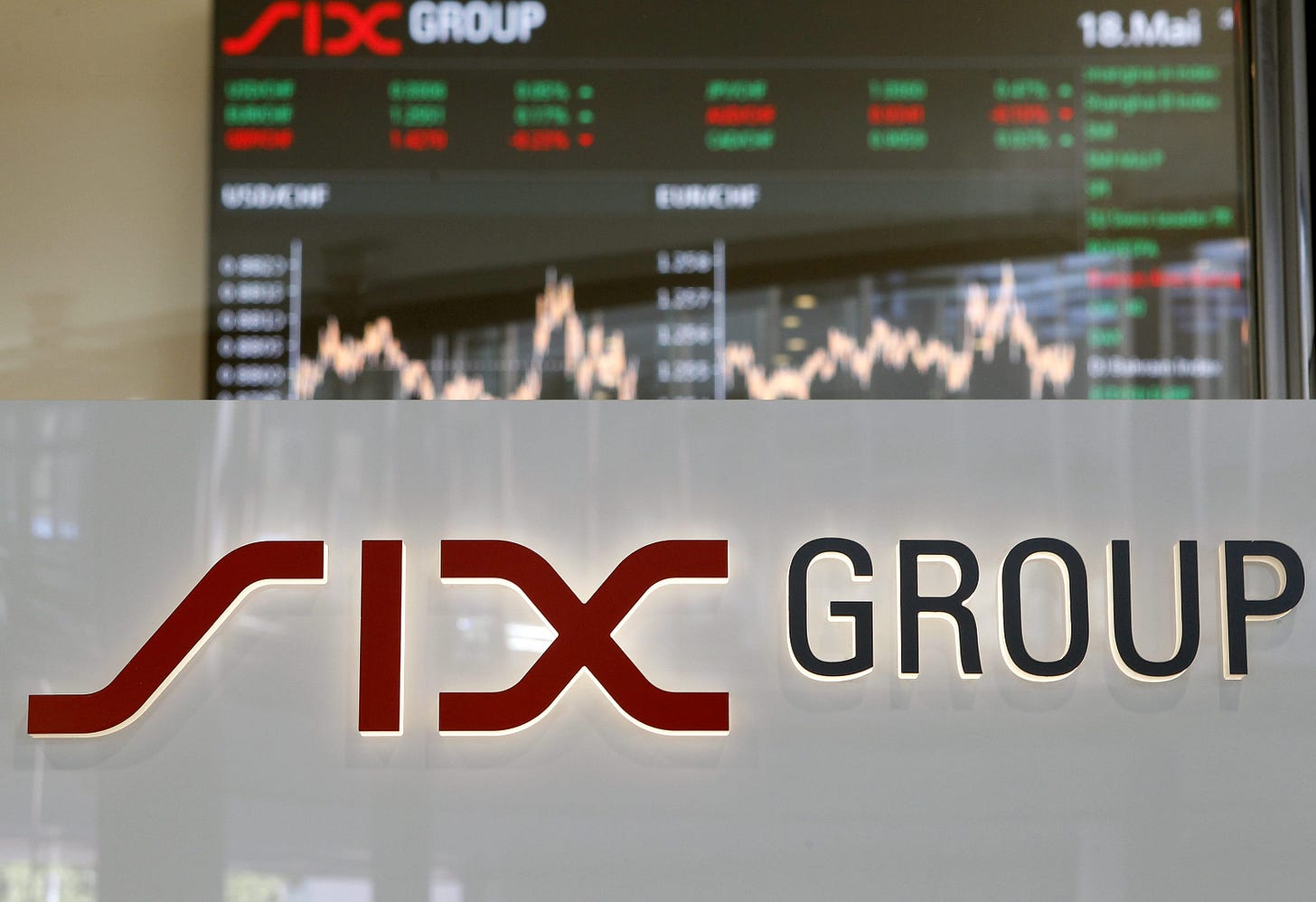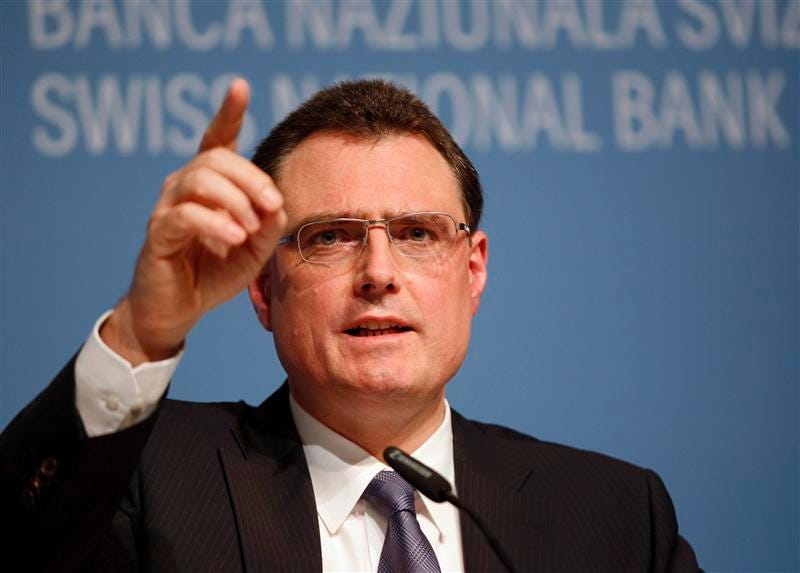Dear Insider,
Welcome to 2024!
The Swiss Insider is back with a fresh focus on delivering clear-cut insights, stories and profiles from the most success country in the world - Switzerland.
If Switzerland could speak for itself like a person, its new year’s resolution would certainly be: more of the same
But that is not possible.
The process of micro-renewal, of mini-reforms and incremental improvements continues. One such change is the election of a new federal councillor in Beat Jans, replacing outgoing councillor Alain Berset.
Expect no revolutions - even if Jans is left-wing.
Other changes in policies will also be minute - if noticeable at all.
But the bad thing about small numbers is that they are easy to ignore. As you will read regarding the Swiss stock exchange SIX - a few years of negative growth eventually add up.
Vigilance is, therefore, great to be desired in 2024.
People in the news
Beat Jans - The newest (Socialist Party) Swiss Federal Councillor has a tall task ahead as Justice Minister. His first challenge? Whether to officially classify Hamas as a terrorist organization.
Evie Kostakis - Among a list of Swiss finance executives in the spotlight, Evie Kostakis stands out - the Julius Bär CFO must stabilize the bank’s position after taking a hit from its bad loans to René Benko’s Signa Group.
Christel Rendu de Lint - The same list of top execs to watch in 2024 includes another female banking leader on the hot seat in 2024. Vontobel’s co-CEO is both ambitious and faced with significant challenges.
Enjoying The Swiss Insider? 😊
Share this edition of The Swiss Insider with your network on social media - and look smarter…immediately. 💡
🏡 Between (tax) heaven & hell
A detailed look at the best (and worst) localities by tax rates
The details:
Tax burdens in Swiss municipalities vary greatly, with the heaviest tax rates in the cantons of Neuenburg and Bern, while the lowest tax rates are found in the cantons of Zug and Schwyz, making them the country's "tax paradises."
Single households with an income of CHF 100,000 face the highest tax rates of up to 19.89% in Enges and Les Verrières, while the lowest tax rate of 5.84% in Baar.
Married couples with two children and a household income of CHF 150,000 pay the lowest tax rate of 2.07% in Baar, while they pay up to 14.13% in Enges and Les Verrières.
The big picture:
The data shows conclusively that tax burdens are higher in western Switzerland - with Zurich standing out as an island of high taxes in the German-speaking area of the country.
Despite higher taxes in the French-speaking region of Switzerland it remains an attractive home to expats and (U)HNWIs relocating from other countries.
The competition between cantons and municipalities highlights the market-based competitiveness that underpins the Swiss economic model.
📉 Cooling engines
Trading on the SIX Swiss exchang has been dropping off
The details:
In 2023, the trading volume on the Swiss Stock Exchange (SIX) fell by 13.4% from the previous year to CHF 1,046 billion, with the number of transactions dropping by about a quarter to 46.1 million. This marks a continuing decline as volumes also fell in 2021 and 2022, however, the blue-chip index SMI ended 2023 up by 3.8% from the previous year.
Last year, ten new companies were listed on the Swiss Exchange.The highlight was the listing of the Novartis spin-off Sandoz, with a market capitalization of around CHF 10.5 billion.
The turnover with stocks (including funds and ETPs) fell by 15.2% to CHF 802.5 billion, while the bond trading volume increased by 10.7% to CHF 171.6 billion. Significant decreases were observed in sectors involving ETFs and securitized derivatives, with turnovers declining by around a third compared to the previous year.
The big picture:
The SIX Swiss Exchange, as it is officially known, has a dominant - even monopolistic - position in the Swiss capital markets. It is owned by a consortium of 122 Swiss banks and financial institutions.
Recent years have seen the exchange at the heart of Swiss-EU disputes. The EU revoked the exchanges “equivalency" guarantee - leading to Swiss stocks being delisted from European exchanges. This event that ultimately helped the Swiss market weather the pandemic due to increased trading on its own platform.
Despite that success, the capital markets in Switzerland have seen less interest and decreasing volumes. These signs indicate a weaking demand among investors for Swiss products and an overall shift in capital market structure - something that SIX has tried to keep up with.
Interested in supporting The Swiss Insider? 💡
For now, all editions are free. But in the future more exlusive content may come with a subscripiton.
Why not pledge towards a subscription now?
⏰ Old-timing anew
(Small) changes coming to the Swiss pension system
The details:
In 2024, the Swiss pension system will undergo its largest reform in decades, offering more flexibility in the retirement age, which can be chosen between 63 and 70 years old. Early retirees will experience a lifelong cut iin pension by 6.8% for each year in advance. Working beyond 65 years gives a bosnus, though these rates will be adjusted for increased life expectancy starting from 2027.
The reform also introduces partial retirements, making it possible to draw a pension between 20 and 80% and defer the rest. The retirement process can now occur in monthly steps, rather than yearly.
Finally, the reform raises the retirement age for women progressively from 64 to 65 years, starting in 2025. There are compensatory benefits for women born between 1961 and 1969, such as reduced pension cuts if they retire early and lifelong bonuses on the AHV pension if they retire at the reference age or later.
The big picture:
As in all countries, retirement reforms in Switzerland are a hot-button topic - especially as populations age and health care costs soar.
The reforms that come into force this year will not go far to reform the so-called first pillar (AHV) of the national pension system. Both left and right-wing parties have made proposals to address looming shortfalls, but no major reforms have been implemented.
📈 Strong Swissie
A more valuable Swiss franc has consequences
The details:
The Swiss franc has experienced a rapid appreciation against the euro and dollar, with the dollar and euro depreciating by around 9% and almost 6%, respectively, since the start of the year.
Markets expect the U.S. Federal Reserve to cut interest rates by 1.5 percentage points in six steps in the coming year. The Swiss franc's appreciation against the dollar is therefore substantial as the Swiss National Bank has significantly less room for rate cuts compared to the Fed.
The next monetary policy assessment of the SNB will occur in March 2024, and there are hopes that the SNB will consider the situation of the Swiss industry, which exports 80% of its goods, while maintaining price stability.
The big picture:
Previous efforts by the SNB to control the strength of the franc ended with the central bank holding large amounts of equities on its balance sheet, resulting in a loss when markets dropped.
Some economists calculate that the SNB refrains from interventions since inflation in the eurozone has far oustripped that in Switzerland, keeping relative prices in line.
With growth fragile around Europe, a slow-down in Germany or eastern Europe could further reduce demand for Swiss exports, compounding the problem of a strong currency.
❗️❗ Be sure to follow The Swiss Insider on LinkedIn - right here.
💡The Insider Advantage
The new year 2024 begins with clarity about the past 12 months and what it has meant for the Swiss economy up until now.
Some in positions of authority will benefit from the numbers - both because they look good or because they offer a chance to rip up the old and offer new alternatives.
Beat Jans would like to do exactly that - but his position as Justice Minister will give him other tasks that don’t lend themselves to bean-counting…or congratulations.
Relatively speaking, the Swiss economy remains strong even as interest rates have climbed 2% and the Swiss franc has strengthened.
Even as unemployment remains low (2.1%) - there are concerns that export-heavy companies may have to cut jobs in the near term if the eurozone and Germany in particular face economic headwinds.
Whether the new year and its numbers will be kind to those who stumbled in 2023 - like Julius Bär - remains to be seen.
The Bonus
❌ Shutting down - Over 10’000 companies filed for bankruptcy in Switzerland over the course of 2023. (Link)
🏔️ Loading the slopes - International tourists flonged to Jungfraujoch in record numbers (over 1 million), erasing the losses caused by the pandemic. (Link)
💸 (Credit) number go up - Consumer credit interest rates in Switzerland are now set 1% higher as of 1 January - now at 12%. (Link)
Share this edition of The Swiss Insider with your network. They will thank you!





